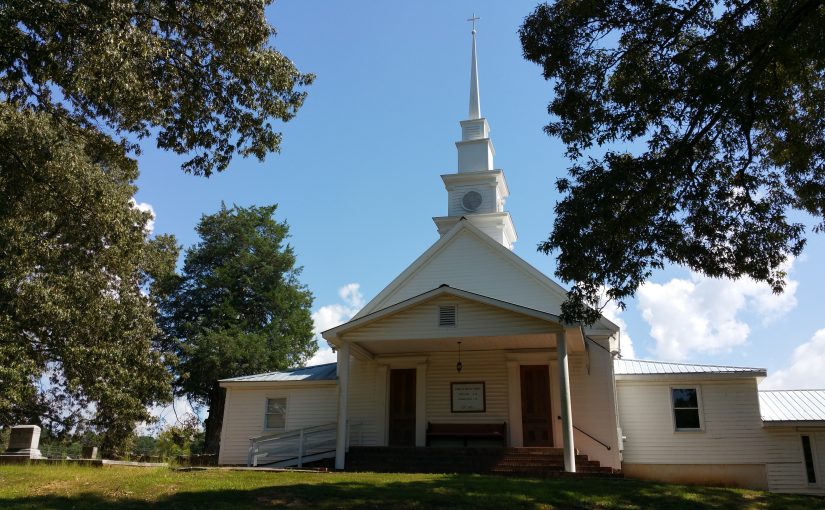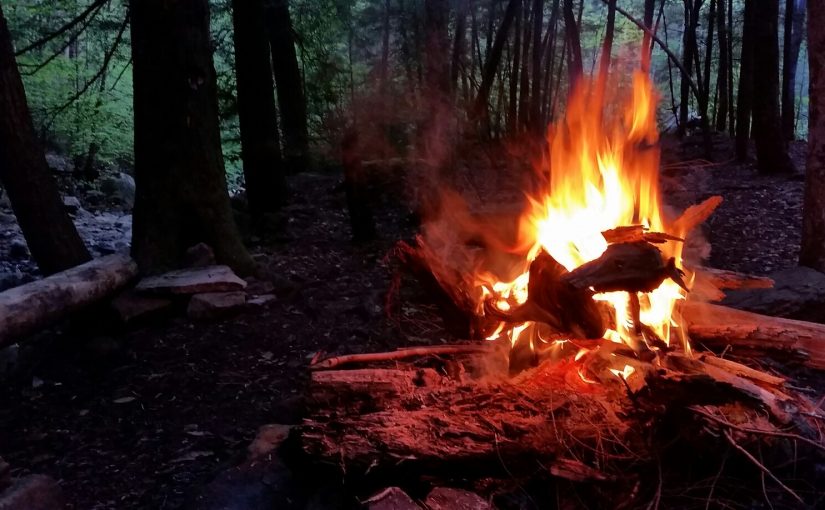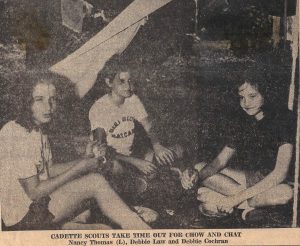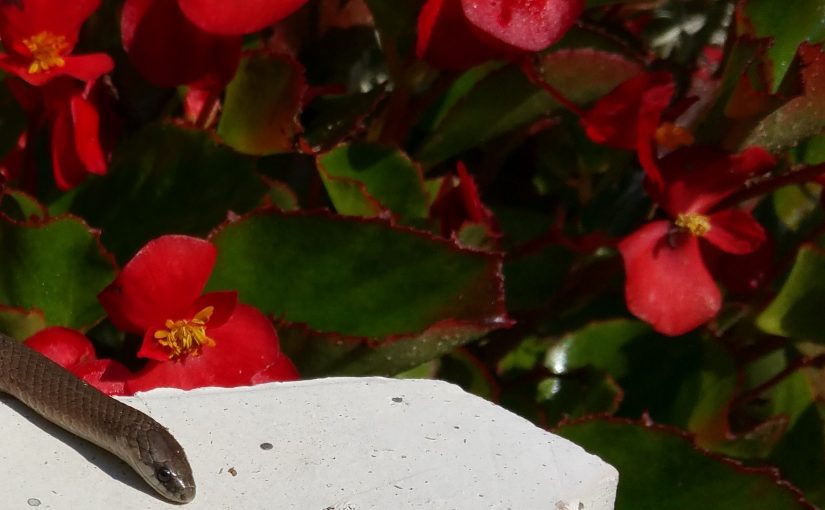It’s happened to me lots of times: in Denver, New England, San Francisco- I open my mouth and someone looks at me like I’m some kind of oddity. “Where are you from?” As the world becomes smaller, more connected and homogeneous, what sets a small-town Southerner apart? (Besides the friendly demeanor and beautiful accent):
Courtesy is the hallmark of a true Southerner. From infancy we’re soaked in it and consumed by it like ice cubes in a sweaty glass of sweet, refreshing tea.
Courtesy is a simple concept- it’s treating people with respect and graciousness. Anybody can do it, but Southerners are deliberately and methodically trained so that courtesy gradually becomes an involuntary process like breathing.
We learn to call our elders “Sir” and “Ma’am” as we learn to talk. Every Southerner has taken part in the following conversation both as a young child and as an adult:
Adult: (Asks any question requiring an affirmative answer).
Young Child: “Yeah.”
Adult: (severely) “Yeah?”
Young Child: “Yes, Sir.”
Adult: “That’s better.” (Pats head of child) “Now run along.”
Southerners invite someone else go first, whether in line at the church supper, the bank, or the grocery store; we let other drivers out at busy intersections, and we refrain from honking our horns when the light turns green. We hold doors open. We shake our heads and say, “Bless her heart, she’s trying,” instead of becoming impatient toward inept, flustered people. We do not fail to say “please” and “thank you,” and remember our mamas would tan our hides if we acted ugly.
In the South, family bonds are tight as the bark on a hickory tree. Grandparents help raise us, cousins feel like brothers and sisters, we know well our great-aunts and third cousins. We search for ways to claim kin, we look forward to reunions, and somebody has compiled a book on how we are related to every other native of our hometown, by blood or marriage.
Family is deeper than shared history and traditions. Family is more than whom we eat with, play with, fight with, and fight for. Family demands the sacrifices of love, commitment, forgiveness, loyalty, and responsibility. Family is honor. Family is identity. Family is where we come from, who we are, and what we leave behind.
We listen to the wisdom of old ones, and consider the times, people, and places they have known. We welcome new ones, crowding joyfully to weddings and baby showers. We teach young ones what it is to be family. We stand at the funeral home, arms around each other, and bid farewell to ones who are leaving us behind.
We pore over faded photographs, Confederate muster rolls, fragile letters, and lengthy genealogies. We visit abandoned homeplaces and wander through old cemeteries. We pass along treasured heirlooms and the memories that accompany them. In a Southern family, we sing the same songs and tell the same stories over and over (and laugh just as hard every time). We have the same cowlicks, twin toes, or goofy grins. We pride ourselves on how fast we all run, how well we all sing, or how good our coconut cake is. (It’s Mee-Maw’s recipe). Family gives us deep roots, ever-spreading branches, and the ability to grow straight and strong. We rest in its shelter with all the other nuts who look like us.
Southern hospitality is real.
The Southern host has a knack for offering come on in and set a spell comfort. Although the Southern hostess may have been preparing her inviting home, beautiful flowers, monogrammed hand towels, and extravagant amounts of food and drink for days-she is able to convince her company that she has gone to no trouble at all. She hopes everyone likes the banana pudding- although she is afraid it isn’t fit to eat, it’s way too brown on top.
True Southern hospitality is not about putting on the dog, although a great deal of thought and effort goes into making guests feel valued and welcome. The secret of Southern hospitality to help friends relax and feel at home, not as guests, but as one of the folks. They may even help with the dishes.
Southerners love to linger around the table and talk about everything under the sun, especially religion and politics, but a courteous guest knows when to skee-daddle. When a Southerner stands on the front porch, waves good-bye, and calls “Y’all hurry back,” the chances are good he means it (unless the guest has worn out his welcome by lingering too long around the table). The guest is eager to come back, because not only did he tell and hear some great stories, but that was the best banana pudding he ever put in his mouth.
Independence is fire in the heart of the Southern character. Proud and self-reliant, Southerners do not take kindly to being bossed. A Southerner feels his common sense, courtesy, upbringing, and conscience are good guides; therefore, he doesn’t need anyone sticking a nose in his personal business. He firmly believes that everyone ought to get down off their high horse and tend their own knitting.
A Southerner will park his truck in the middle of his front yard if he wants to, and he will be angry and offended if anyone tells him he should move it. A Southerner will rear her children, speak her mind, fire her gun, burn her trash, and make her personal decisions in the manner she deems appropriate. Bureaucrats, paper-pushers, busybodies, “know-it-alls,” “tattletales,” “nit-pickers,” neighborhood association officers, and especially “Yankees” who fall into the former categories, fan the Southerner’s independent spirit into a hot blaze.
A Southerner is generous and quick to help others, but strongly resists receiving any help himself. A Southerner wants to stand on his own two feet, and resents encroachment on personal liberty. When someone tells a Southerner what to do, he takes it as a personal attack. The person who is giving the order (or suggestion) thinks he or she is smarter or better than the Southerner (in his mind), and this insult cannot be borne. When giving advice to a close friend or family member (the only people it’s acceptable to advise), a Southerner will not say, “You need to move that old washing machine off your porch.” He will instead say, “If I was you, I might think about carrying off that old washing machine.” The person receiving the advice will then think about moving the washing machine off his porch instead of throwing the adviser off his property. Come to think of it, maybe we are courteous because we are also easily offended. Hmmm…
A Southerner will make his own decisions and pay for his own mistakes, although he usually will not admit he made one.
Southerners “speak to people” whether they know them or not. They smile, have a quick sense of humor, and a way with words. They know how to shoot the breeze with anyone they meet.
Weather is always an appropriate topic when shooting the breeze. The Easter Snap, Blackberry Winter, or Dog Days provide conversational interest during their appropriate seasons, but most of the time the comment, “Fine weather today,” (temperature under 85 degrees) or “Reckon it will get hot later?” (90 degrees or above) is appropriate. Southerners love sports, gardening, hunting, fishing, cookouts, and most outdoor activity. The weather usually cooperates, except for a few days in January.
Sports are another good topic, provided both members of the conversation are in agreement over their favorite SEC team, or at least friendly in their rivalry. An ill-advised “How ’bout them Dawgs?” or “Roll Tide!” make provoke a hostile response, Southern courtesy notwithstanding. An always-appropriate light conversation starter outside football season is: “I heard the Braves almost won a game last week!”
It’s fine to shoot the breeze in the grocery line by remarking to a stranger: “That’s a pretty bag there in your buggy. Who does your monogramming?” It is not fine to nod toward someone farther up in line and whisper, “Look at that get-up. Bless her heart, she must have got dressed in the dark. I wouldn’t be caught dead in that.” Shooting the breeze is supposed to be light and pleasant; besides, “she” could very well be the stranger’s second cousin.
For serious conversation, ask a Southerner about religion. Election or free will? Immersion or sprinkling? Once saved, always saved? The small-town or rural Southerner will have an opinion on most theological or moral questions and many will pull out a well-worn Bible to prove the point. Southern towns are so full of churches, you “can’t stir ’em with a stick.” They are mostly Baptist, Methodist, or Presbyterian, but there is also a wide selection of other Protestant congregations- from Episcopalians to Pentecostals. There might also be a Catholic Church and a synagogue. Out in the country it’s still possible to find a tiny, weather-beaten church where a snake-handler tests his faith, if one looks hard enough.
Sadly, they are becoming scarce as hens’ teeth, but If you find a Southern church where the members call their pastor “Brother Dwayne,” shout “Amen!” when he makes a particularly stirring point, and sing parts, be sure to attend the Fifth Sunday Singing and Covered Dish Dinner. (Dinner is the noonday meal). It won’t be easy, but pass up seconds on the fried chicken, creamed corn, collards, and sweet potato casserole, go easy on other “vegetables” like macaroni and cheese, and get on that pecan pie like a duck on a June bug. It’s Mee-Maw’s recipe.
And that’s “where I’m from.”





